How To Transition Tech No Experience
How to transition tech no experience is a crucial guide for individuals seeking a career in technology. This comprehensive resource explores the entire journey, from understanding the tech landscape to adapting to the fast-paced work environment. It’s designed to equip newcomers with the knowledge, skills, and strategies necessary to succeed in the competitive tech industry.
The guide meticulously Artikels the key steps involved in this transition. It delves into identifying tech roles, building a strong foundation of skills, crafting a compelling portfolio, and preparing for technical interviews. Further, it covers the importance of leveraging resources, adapting to the tech environment, navigating specific roles, and maintaining momentum throughout the process.
Understanding the Landscape
Navigating the tech industry without prior experience can feel daunting, but understanding the diverse roles and paths available significantly eases the transition. This section details the types of tech roles, companies welcoming newcomers, essential skills, and pathways for entry. It also addresses common misconceptions to help you make informed decisions.The tech sector is incredibly broad, encompassing a multitude of roles, each with varying skill requirements and experience levels.
This understanding is crucial for identifying a suitable path. Different companies and teams have unique needs and requirements, leading to various avenues for entry.
Different Types of Tech Roles
Various tech roles exist, each demanding specific skills and experience levels. Entry-level roles often involve tasks like data entry, basic coding, or assisting more experienced team members. Mid-level roles usually require more in-depth technical knowledge and demonstrable project experience. Senior-level positions necessitate extensive expertise, leadership abilities, and a proven track record of success. The spectrum of roles spans software development, data science, cybersecurity, project management, and many more.
Companies Recruiting Individuals with No Tech Background
Several companies actively recruit individuals with no prior tech experience. Many start-ups and established tech firms recognize the value of diverse skill sets and are keen to support those seeking to transition into the field. Companies like [Company A], [Company B], and [Company C] have programs and initiatives to help newcomers acquire relevant skills and experience. Some of these companies offer specific onboarding programs or mentorship opportunities.
In-Demand Tech Skills
The tech landscape is constantly evolving, leading to a dynamic demand for skills. Proficiency in programming languages like Python, JavaScript, or Java, along with data analysis tools and cloud computing platforms, is highly sought after. A strong foundation in problem-solving, critical thinking, and communication skills is also critical for success. Skills like data analysis, cloud computing, cybersecurity, and AI/machine learning are among the most in-demand.
Paths into Tech for Individuals Without Prior Experience
Individuals without a tech background can transition into the industry through several avenues. Formal boot camps, online courses, and self-learning platforms provide structured learning experiences. Many universities offer specialized programs or courses that equip students with the technical skills necessary. Internships and volunteer positions offer practical experience and the opportunity to network with professionals in the field.
Mentorship programs provide guidance and support.
Common Misconceptions about Transitioning into Tech
A common misconception is that a strong coding background is the only requirement for a tech role. While technical skills are important, soft skills like communication, teamwork, and problem-solving are equally crucial. Another misconception is that transitioning into tech requires a significant investment of time and money. Structured learning resources, coupled with self-discipline, can make the transition significantly less costly.
Boot camps and online courses offer a more efficient and cost-effective path to skill development.
Skill Sets for Various Tech Roles
| Role | Essential Skills |
|---|---|
| Software Developer | Programming languages (e.g., Python, Java, JavaScript), software development methodologies, debugging skills |
| Data Scientist | Statistical modeling, data visualization, programming languages (e.g., Python), data analysis tools |
| Cybersecurity Analyst | Networking protocols, security threats, risk assessment, incident response, programming languages |
| Project Manager | Project planning, risk management, communication, time management, stakeholder management |
Building a Foundation: How To Transition Tech No Experience
Building a strong foundation in technology is crucial for anyone seeking a career in the field, regardless of prior experience. This involves a combination of acquiring fundamental technical skills, gaining practical experience, and developing a professional network. A well-structured approach to learning and engagement can significantly increase your chances of success.Developing a robust skillset in the tech industry is a continuous process.
It requires dedication, a proactive approach to learning, and an understanding of the evolving landscape. This section Artikels key strategies and resources to help you build a solid foundation.
Effective Strategies for Acquiring Foundational Tech Skills
Developing technical skills is a multifaceted process. It encompasses learning programming languages, mastering software applications, and understanding fundamental concepts in computer science. Consistency and a strategic approach are essential. Effective strategies often involve a combination of structured learning and practical application.
Online Courses and Boot Camps
Numerous online platforms offer comprehensive courses and boot camps tailored for individuals with no prior tech experience. These programs often provide structured learning paths, practical exercises, and opportunities to interact with instructors and peers. Some reputable providers include Udemy, Coursera, Codecademy, and various boot camps specializing in web development, data science, and cybersecurity. These resources can provide structured learning experiences, allowing you to acquire in-demand skills efficiently.
Self-Learning Resources
Beyond structured courses, self-learning resources play a significant role in skill development. Websites like freeCodeCamp, Khan Academy, and GitHub offer numerous tutorials and documentation for various technologies. Online communities, forums, and blogs also serve as valuable resources, providing support, guidance, and insights from experienced developers. Active participation in these resources can augment your learning experience.
Gaining Practical Experience
Practical experience is essential to solidify theoretical knowledge. This can be achieved through personal projects, volunteer work, or internships. Creating personal projects allows you to apply learned skills in real-world scenarios, build a portfolio, and demonstrate your abilities. Volunteer work can offer valuable experience, particularly in areas like web design or software development, allowing you to collaborate with others and gain practical experience in a supportive environment.
Importance of Networking
Networking within the tech industry is crucial for career advancement. Attending industry events, joining online communities, and connecting with professionals on platforms like LinkedIn can provide valuable insights, opportunities, and mentorship. Networking can help you stay updated on industry trends, discover potential career paths, and gain access to job opportunities.
Structured Plan for Acquiring Essential Tech Skills
A structured plan can significantly improve your learning process. Begin by identifying specific areas of interest within technology, such as web development, data science, or cybersecurity. Next, create a learning schedule that incorporates online courses, self-learning resources, and personal projects. Allocate dedicated time for learning, practice, and networking. Regularly assess your progress and adjust your plan as needed.
This approach helps you stay focused and achieve your goals efficiently.
Preparing for Interviews
Navigating the interview process can feel daunting, especially when entering a new field with no prior experience. However, with the right preparation and a strategic approach, you can confidently address interview questions and showcase your potential. This section will delve into common interview questions, effective communication strategies, and practical techniques for tackling various interview formats.Technical interviews often demand more than just theoretical knowledge; they assess your problem-solving skills and ability to apply concepts in real-world scenarios.
This section will Artikel strategies to effectively answer technical questions, even without direct experience. Emphasizing your transferable skills and passion for learning will be key.
Common Interview Questions in Tech Roles
Interviewers often probe beyond basic qualifications, seeking to understand your aptitude and how you approach challenges. Knowing the common types of questions asked will enable you to craft targeted responses. These questions often explore your understanding of fundamental concepts, problem-solving approaches, and your ability to think critically. A common thread across these questions is the assessment of your ability to learn, adapt, and work collaboratively.
- “Tell me about yourself.” This isn’t just about your resume; it’s an opportunity to highlight your relevant skills, experiences, and motivations. Showcase your transferable skills and how they align with the role’s requirements.
- “Why are you interested in this role?” Research the company and the specific role deeply. Connect your interests to the company’s mission and your career goals. Demonstrate genuine enthusiasm and a clear understanding of the role.
- “Why do you want to work in tech?” Articulate your passion for the field and its impact. Describe your interest in the specific technologies or industries related to the role. Highlight any relevant projects or coursework demonstrating your interest.
Strategies for Answering Technical Questions with No Direct Experience
When facing technical questions, even without direct experience, focus on demonstrating your understanding of fundamental concepts and problem-solving skills. Highlight any relevant coursework, projects, or personal projects that showcase your ability to learn and apply knowledge.
- Acknowledge your lack of direct experience, but frame it positively. State that you may not have direct experience, but express your eagerness to learn and apply concepts. For example, “While I haven’t worked directly with [specific technology], I’ve studied it extensively in [course name] and have experience with [related technology].”
- Focus on the underlying principles. Instead of memorizing specific code snippets, emphasize the underlying principles and algorithms. Explain how you would approach a problem and the reasoning behind your choices. This demonstrates your problem-solving skills and ability to think critically.
- Use examples from your coursework or personal projects. Illustrate your understanding by drawing parallels from similar situations. This helps interviewers see how you can apply your knowledge to practical problems.
Importance of Effective Communication Skills in Tech Interviews
Clear and concise communication is crucial in tech interviews. Your ability to articulate your thoughts and ideas effectively can significantly impact your performance. Be prepared to explain complex concepts in a way that is easily understood.
- Practice articulating your thought process. Explain your approach to problem-solving, even if you don’t have the complete solution. Demonstrate your reasoning and the steps you would take to arrive at a solution.
- Actively listen to the interviewer’s questions. Clarify any ambiguities before responding. This shows your attentiveness and commitment to understanding the problem.
- Use precise and concise language. Avoid jargon or overly technical terms unless you’re sure the interviewer understands. Explain complex concepts in a way that is accessible to a broader audience.
Different Interview Formats and How to Prepare
Interview formats vary, and preparation should align with the specific format.
- Behavioral interviews assess your past experiences and how you’ve handled different situations. Prepare examples using the STAR method (Situation, Task, Action, Result) to illustrate your skills and competencies.
- Technical interviews evaluate your understanding of technical concepts and your ability to solve problems. Practice coding challenges and discuss your approach to problem-solving.
- Take-home assignments may involve coding or writing projects to assess your practical skills. Plan your time and clearly Artikel your steps.
Handling Questions About Gaps in Experience
Addressing gaps in experience requires honesty and a proactive approach.
- Be prepared to explain any gaps truthfully and transparently. Focus on what you learned and developed during that time, highlighting personal projects, volunteering, or courses that helped you gain new skills.
- Frame the gap as an opportunity for growth and learning. Connect the experience to your career goals and demonstrate how you’ve used the time to enhance your skills and knowledge.
Tips for Conducting Mock Interviews, How to transition tech no experience
Mock interviews provide valuable feedback and help you refine your interview skills.
- Seek feedback from mentors, career counselors, or peers. Having someone critique your responses can help you identify areas for improvement.
- Record yourself practicing and review your performance. This allows you to identify areas where you can improve your body language and communication style.
- Focus on active listening, clarity, and conciseness. These are key aspects that interviewers often look for in candidates.
Leveraging Resources and Support
Transitioning into a tech career without prior experience requires strategic resourcefulness. Seeking guidance and support from various channels is crucial for navigating the often complex landscape and building confidence. This involves leveraging mentors, online communities, and support networks to accelerate your learning and development.Beyond the theoretical knowledge acquired, the practical application and real-world experiences shared within these communities are invaluable.
Connecting with professionals in the field allows for the exchange of insights, the identification of potential challenges, and the cultivation of a strong support network. This active engagement fosters a deeper understanding of the industry and paves the way for a successful career trajectory.
Career Counseling and Mentorship
Career counseling provides valuable insights into identifying suitable career paths within the tech industry. Experienced career counselors can help assess your skills, interests, and aspirations to tailor a personalized plan for career advancement. Furthermore, mentorship offers invaluable guidance from seasoned professionals. Mentors can offer practical advice, share their experiences, and provide support as you navigate your career journey.
Numerous organizations and platforms offer these services. Consider exploring options at local career centers, universities, and online platforms specializing in career guidance.
Online Communities and Forums
Engaging with online tech communities and forums offers exposure to diverse perspectives and insights. These platforms serve as invaluable resources for gaining knowledge, asking questions, and seeking feedback. They also provide opportunities to network with like-minded individuals and professionals. Sites like Stack Overflow, Reddit’s r/learnprogramming, and dedicated tech forums offer a wealth of information and community support.
Active participation in these forums can significantly enhance your understanding of various tech concepts and foster valuable connections.
Importance of Feedback and Iteration
Seeking feedback is paramount to growth. Constructive criticism from peers and mentors allows for identifying areas needing improvement and refining your approach. This iterative process of self-assessment and refinement is essential for skill development and career advancement. Regularly soliciting feedback on projects, code, and approaches can provide invaluable insights and help you optimize your strategies. Embrace feedback as an opportunity for growth, not a criticism of your efforts.
Strategies for Connecting with Tech Professionals
Building connections with tech professionals is vital for navigating the industry. Networking events, conferences, and online platforms provide opportunities to connect with individuals in your field of interest. Actively participating in online discussions and engaging with industry professionals on social media can create connections and foster relationships. Attend industry events and workshops to expand your network and gain firsthand insights from experienced professionals.
Types of Support Networks for Tech Newcomers
Various support networks cater to the specific needs of tech newcomers. These networks often provide structured learning opportunities, mentorship programs, and opportunities for networking. University career services, industry-specific groups, and online communities are examples of such networks. Identifying and engaging with these resources can offer a structured approach to entering the tech industry and developing a strong support system.
Leveraging these networks can greatly enhance your chances of success.
Adapting to the Tech Environment

Source: powertofly.com
Navigating the tech industry requires more than just technical skills. A successful transition hinges on understanding and adapting to the unique culture, work styles, and collaborative dynamics prevalent within tech companies. This section explores key aspects of adapting to this fast-paced environment, highlighting the importance of continuous learning and effective teamwork.The tech industry is characterized by rapid innovation and constant change.
Adaptability and a willingness to learn are paramount to thrive. A collaborative spirit and the ability to quickly absorb new information are critical for success in this dynamic environment. Different tech companies may foster varying work styles, demanding adaptability to multiple environments.
Understanding Tech Company Cultures
Tech company cultures often exhibit distinct characteristics. Some prioritize a fast-paced, high-energy atmosphere, while others emphasize a more structured, collaborative approach. Understanding these differences helps individuals tailor their approach to specific environments. Different company values, communication styles, and expectations influence how work is performed. This understanding facilitates smoother integration and stronger relationships with colleagues.
Adapting to Fast-Paced Environments
The tech industry is renowned for its fast-paced nature. Staying ahead of the curve necessitates a proactive approach to learning and a willingness to embrace change. This includes continuous learning, proactively seeking opportunities for professional development, and keeping up with industry trends. Adapting to rapid changes in technology and methodologies is crucial for career progression. Staying current with new technologies and methodologies is essential for remaining relevant and effective in this dynamic environment.
Collaborative Work Styles in Tech
Collaboration is central to success in tech. Teams often work on complex projects requiring seamless communication and shared responsibility. Effective communication, active listening, and respect for diverse perspectives are vital for productive collaboration. Tech teams frequently leverage collaborative tools and platforms for efficient communication and information sharing. Effective communication, active listening, and a collaborative mindset are vital for success in tech teams.
Continuous Learning in Tech
The tech industry is constantly evolving. Maintaining competitiveness demands a commitment to continuous learning. This involves staying updated on emerging technologies, participating in workshops, attending conferences, and exploring online learning resources. Proactive engagement in learning ensures staying current with the latest developments. Regular learning fosters a culture of innovation and helps professionals remain relevant and effective in this rapidly evolving field.
Examples of Different Work Environments in Tech
Different tech companies cultivate distinct work environments. Some may embrace a flexible, remote-work model, while others emphasize in-office collaboration. Recognizing these variations allows individuals to adapt their approach to suit the specific company culture. An understanding of these differences allows individuals to adjust their work style to match the environment. Example: A startup environment often prioritizes agility and rapid decision-making, while a large corporation may emphasize a more structured and methodical approach.
Adapting to the specific demands of each environment is key to success.
Navigating Specific Tech Roles
Transitioning into a tech career with no prior experience requires a strategic approach. Understanding the diverse roles within the industry and tailoring your skills and learning path to specific positions is crucial for success. This section will delve into various tech roles, outlining the necessary skills, educational paths, and steps to prepare for them.Different tech roles demand distinct skill sets and experiences.
Success hinges on recognizing these differences and proactively developing the required competencies. Identifying the specific roles you aspire to and aligning your efforts accordingly is key to a smooth transition.
Identifying Tech Roles
A variety of roles exist within the tech sector, each with its own focus and responsibilities. From software engineering and data analysis to cybersecurity and project management, the options are vast. Understanding the core functions of each role provides a framework for selecting the most suitable path.
- Software Engineer: This role involves designing, developing, and testing software applications. Strong programming skills, problem-solving abilities, and an understanding of software development methodologies are essential.
- Data Analyst: Data analysts collect, analyze, and interpret data to identify trends and insights. Proficiency in data analysis tools, statistical methods, and data visualization techniques are key requirements.
- Cybersecurity Analyst: This role focuses on protecting computer systems and networks from cyber threats. Knowledge of cybersecurity principles, network security protocols, and threat detection methodologies is critical.
- Project Manager: Project managers oversee the planning, execution, and completion of software development projects. Strong organizational skills, communication abilities, and experience managing complex projects are vital.
Transitioning into a Specific Role
Transitioning into a tech role without prior experience requires a proactive approach. Demonstrating transferable skills and acquiring the necessary technical skills are paramount.
- Identify Transferable Skills: Assess your existing skills and identify how they can be applied to a specific tech role. For example, strong analytical skills can be valuable in data analysis roles, while communication skills are important for project management.
- Develop Technical Skills: Focus on acquiring the technical skills required for the chosen role. Online courses, boot camps, and personal projects can significantly enhance your technical proficiency.
- Build a Portfolio: A portfolio showcasing your skills and projects can be highly beneficial during the job search process. Contribute to open-source projects or create personal projects to build a strong portfolio.
Skills Required for Specific Tech Roles
Different tech roles demand specific skill sets. A deep understanding of the required skills for a specific role is vital.
| Role | Key Skills |
|---|---|
| Software Engineer | Programming languages (e.g., Java, Python, JavaScript), software development methodologies (e.g., Agile), problem-solving skills, debugging skills. |
| Data Analyst | Data analysis tools (e.g., SQL, Excel, Python libraries), statistical analysis, data visualization, data interpretation, communication skills. |
| Cybersecurity Analyst | Network security, cybersecurity principles, threat detection, incident response, security protocols. |
| Project Manager | Project management methodologies (e.g., Agile, Waterfall), communication skills, organizational skills, time management, risk management. |
Preparing for a Specific Tech Role
Thorough preparation is crucial for securing a tech role. Understanding the interview process and practicing relevant skills is essential.
- Research the Role: Deeply understand the responsibilities and required skills for the specific role. Research companies and teams where you want to work.
- Practice Interview Questions: Practice answering common interview questions related to the specific role. Prepare examples of your work or projects.
- Network with Professionals: Connect with professionals in the chosen field to gain insights and learn from their experiences. Attend industry events or join online communities.
Educational Path for a Specific Role
The educational path required for a tech role can vary depending on the specific role and the desired level of expertise.
- Software Engineering: A bachelor’s degree in computer science or a related field is often required for entry-level roles. Further education or certifications can enhance career prospects.
- Data Analysis: A bachelor’s degree in statistics, mathematics, or a related field can be beneficial. Data analysis certifications and online courses can also be valuable.
- Cybersecurity: A bachelor’s degree in computer science, information security, or a related field is often preferred. Certifications like CompTIA Security+ or Certified Ethical Hacker can significantly enhance your qualifications.
- Project Management: A bachelor’s degree in any field, coupled with project management certifications (e.g., PMP), can be a strong foundation.
Comparing and Contrasting Tech Career Paths
Each tech career path has unique characteristics. Understanding these differences allows you to choose the best fit for your skills and interests.
- Software Engineering vs. Data Analysis: Software engineers focus on building software, while data analysts focus on extracting insights from data. Both require strong analytical skills but differ in their technical requirements.
- Cybersecurity vs. Project Management: Cybersecurity professionals focus on security, while project managers focus on managing projects. Distinct skill sets and responsibilities differentiate these paths.
Maintaining Momentum
Staying motivated and focused throughout the tech transition journey is crucial. Maintaining momentum involves actively managing challenges, learning from setbacks, and celebrating small victories along the way. This proactive approach will help sustain enthusiasm and keep you on track towards your tech career goals.
Strategies for Maintaining Motivation
Maintaining motivation requires a multifaceted approach. It’s about acknowledging the challenges, developing coping mechanisms, and celebrating progress. Regular self-reflection can help identify the root causes of demotivation and develop strategies to counteract them. Setting realistic goals and breaking down large tasks into smaller, manageable steps can make the transition less overwhelming and more rewarding.
- Prioritize Self-Care: Prioritizing physical and mental well-being is essential. A healthy lifestyle—including adequate sleep, balanced nutrition, and regular exercise—significantly impacts energy levels and emotional resilience. This, in turn, fosters a more positive mindset for tackling challenges.
- Embrace Learning as a Journey: Embrace learning as an ongoing process, not a destination. View setbacks as opportunities for growth and learning. Reflect on what you’ve learned from each experience, whether positive or negative. A growth mindset fosters resilience and a positive outlook.
- Celebrate Small Wins: Acknowledge and celebrate every milestone achieved, no matter how small. Recognizing progress reinforces positive behavior and motivates you to continue striving towards larger goals. This could include completing a coding project, acing a technical interview, or mastering a new tool.
Overcoming Challenges
The tech industry is dynamic and challenging. Navigating obstacles and adapting to changing circumstances are crucial aspects of the journey. Building resilience and a problem-solving mindset are essential to overcome these hurdles.
- Identify and Address Obstacles: Recognize the challenges you’re facing. This involves honest self-assessment and a willingness to identify areas where you need improvement. Don’t be afraid to seek guidance from mentors, peers, or online communities.
- Develop a Support System: Build a strong support network of mentors, peers, and friends. A strong support system provides encouragement, guidance, and a sounding board during challenging times. Share your experiences and challenges to gain perspective and motivation.
- Learn from Setbacks: View setbacks as opportunities for learning and growth. Analyze what went wrong and adjust your approach. Resilience is key in navigating the complexities of the tech transition.
Success Stories
Many individuals have successfully transitioned into tech roles with no prior experience. These success stories highlight the dedication and determination required to overcome obstacles and achieve career goals. Their journeys provide inspiration and practical insights for aspiring tech professionals.
- Example 1: A recent graduate with a degree in business administration transitioned to a junior software engineer role. They focused on acquiring necessary technical skills through online courses and personal projects, demonstrating commitment and adaptability. The graduate built a portfolio, highlighting their projects, to showcase their abilities.
- Example 2: A mid-career professional in marketing, having transitioned to a data analyst role, emphasized the importance of continuous learning and adaptability. This individual enrolled in data analysis courses and gained practical experience by working on personal data projects.
Staying Updated on Industry Trends
The tech industry is constantly evolving. Staying current with industry trends and emerging technologies is crucial for career advancement. Continuously learning and adapting to new developments ensures you remain competitive and valuable in the field.
- Follow Industry Publications: Stay informed about industry trends by following reputable tech publications, blogs, and news sources. This helps you stay abreast of the latest developments and technologies.
- Attend Webinars and Conferences: Attending industry webinars and conferences provides opportunities to network with professionals, learn from experts, and gain insights into emerging trends.
- Engage in Online Communities: Participating in online communities related to your field of interest helps you stay informed about industry discussions and developments. This provides a platform for networking and learning.
Building a Strong Professional Network
Networking is vital in the tech industry. Building relationships with mentors, peers, and industry professionals provides invaluable support, guidance, and opportunities. Building a professional network is a crucial aspect of navigating the tech industry.
- Attend Industry Events: Attending industry events provides opportunities to connect with professionals, learn about new technologies, and build relationships. This can lead to potential job opportunities and collaborations.
- Engage in Online Forums: Participating in online forums and groups related to your field helps you build connections with other professionals. This creates a platform for learning, sharing experiences, and seeking guidance.
- Connect with Mentors: Seek out mentors who can provide guidance and support as you navigate your tech career. Mentors offer valuable insights, advice, and networking opportunities.
Continuous Skill Development
Continuous learning and skill development are paramount in the ever-evolving tech landscape. Staying ahead of the curve requires a commitment to lifelong learning.
- Identify Skill Gaps: Regularly assess your skills and identify areas where you need to improve. This helps you tailor your learning efforts to address specific needs and enhance your technical proficiency.
- Embrace Online Learning Platforms: Leverage online learning platforms to acquire new skills and stay updated on the latest industry trends. Platforms like Coursera, Udemy, and edX offer a wide range of courses.
- Take on Personal Projects: Engage in personal projects to apply your skills, gain experience, and build a portfolio showcasing your abilities. This reinforces your understanding of concepts and allows you to demonstrate your proficiency.
Tracking Progress and Evaluating Goals
Tracking progress and evaluating goals is crucial for maintaining momentum and achieving your career objectives. A structured approach helps monitor achievements and identify areas requiring adjustments.
- Create a Progress Log: Maintain a log of your progress, highlighting accomplishments and challenges. Regularly review your log to track your development and identify areas needing improvement.
- Set Measurable Goals: Establish specific, measurable, achievable, relevant, and time-bound (SMART) goals. This allows for tracking progress and evaluating the effectiveness of your strategies.
- Regularly Review and Adjust: Regularly review your goals and strategies to ensure alignment with your aspirations and industry demands. Be prepared to adapt your approach based on your progress and feedback.
Ultimate Conclusion

Source: kajabi-cdn.com
In conclusion, transitioning into tech without prior experience is achievable with a structured approach. This guide provides a roadmap for success, empowering individuals with the tools and knowledge needed to thrive in the tech industry. By understanding the landscape, building a foundation, crafting a compelling portfolio, and preparing for interviews, you can successfully navigate this career transition. Remember, continuous learning and adaptation are key to long-term success.
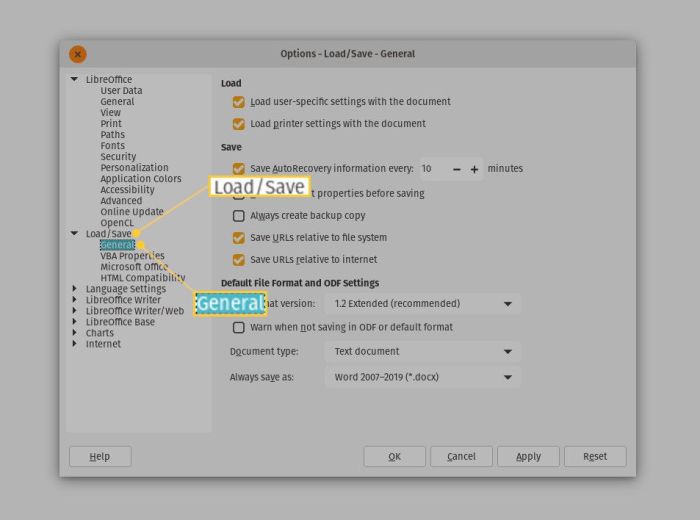
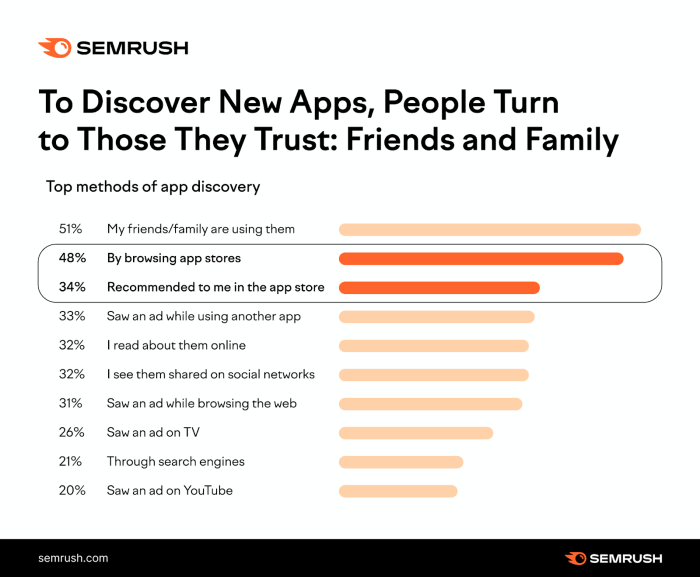
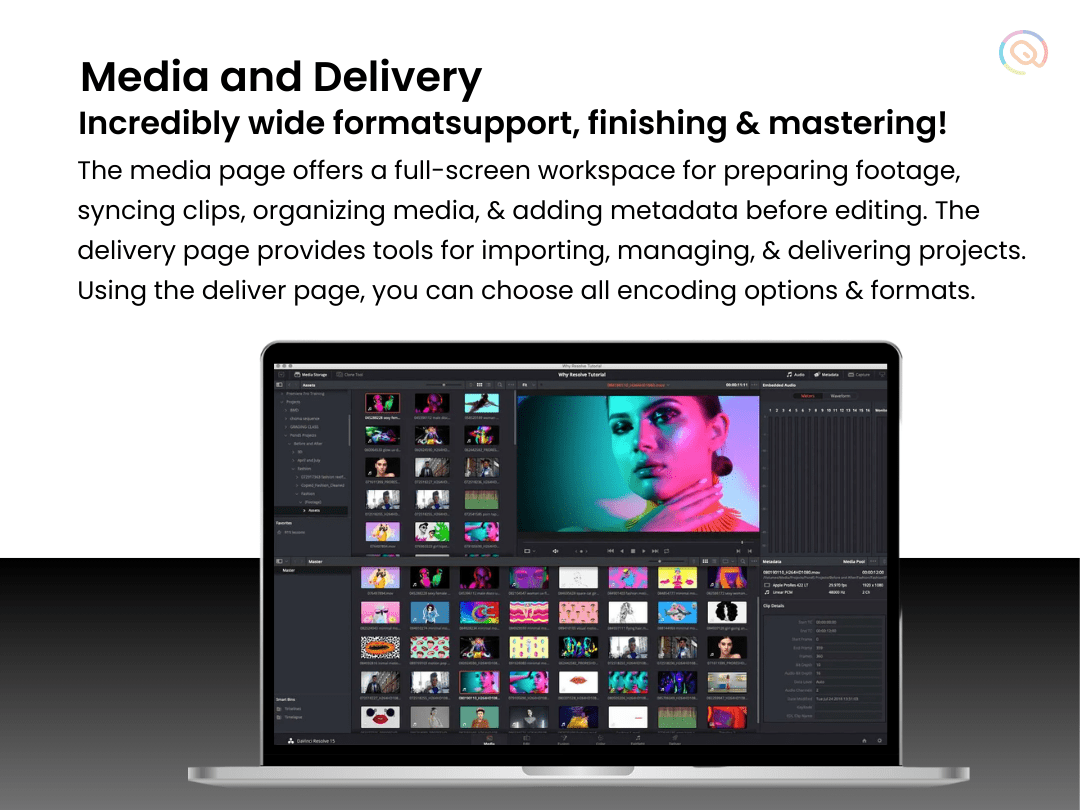
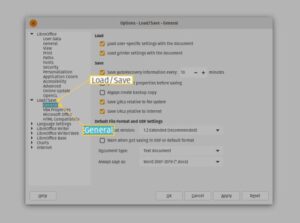
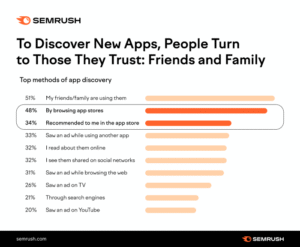
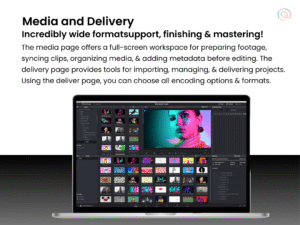







Post Comment